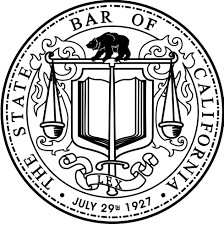California Supreme Court orders interim dues for State Bar of California

The Supreme Court of California has authorized its State Bar to collect interim dues, putting to rest concerns about funding of the state’s attorney discipline system in 2017.
The bar is not able to collect dues as usual in 2017 because the California Legislature did not pass a bar dues bill this summer. Leaders in the legislature’s two houses sharply differed on bar reform measures introduced by the state Assembly, particularly a provision about studying whether the bar should split its attorney discipline functions away from its trade organization functions. Those disagreements ultimately killed the bill altogether.
The state bar responded by asking the California Supreme Court—the bar’s parent agency—to authorize interim dues collection that would support its attorney discipline activities. The state Supreme Court responded Nov. 17 with an order authorizing the Bar to collect $297 per active member. This is slightly less than the $315 that would have been authorized by the defeated bar dues bill. Dues for 2016 were also $315.
The court’s order (PDF) said “it is contemplated” that the money will fund the bar’s member billing and discipline-related functions. The dues order appointed Justice Elwood Lui of California’s Second District Court of Appeal as a special master to collect and allocate the money. Lui was asked to segregate the interim dues money and report to the state supreme court every three months at minimum.
The state bar released a brief statement expressing gratitude and noting that the bar’s board of trustees would discuss it at a planned meeting Nov. 18.
The order may come as a relief for Californians who recall a similar situation in 1998, in which then-Gov. Pete Wilson vetoed a state bar bill out of concern about mission creep and improper entanglement with politics at the bar. Over the following year, the bar’s attorney discipline system was forced to shut down for lack of money, leaving little accountability for attorneys accused of misconduct. That situation was resolved in December of 1998, when the California Supreme Court ruled that its inherent power to regulate the practice of law included the power to set interim dues. A new governor, Gray Davis, took office in 1999 and signed a dues bill.
The disagreement in the legislature this summer pitted a unanimous state Assembly eager for sweeping bar reforms against a skeptical state Senate and Chief Justice Tani Cantil-Sakauye. The Assembly was concerned about reports of discipline cases—particularly unauthorized practice of law related to notario fraud, a common problem in California’s Latino communities—being ignored by state bar prosecutors.
It was also responding to dissent within the state bar’s governing body, the board of trustees. A minority of trustees wants to deunify the bar’s trade group functions from its state regulator functions, and the Assembly felt it was worth studying, according to Assemblymember Mark Stone, (D-Monterey Bay). That proposal, however, was met with serious opposition from state Sen. Hannah-Beth Jackson (D-Santa Barbara) and Cantil-Sakauye. Both raised concerns about the judicial branch’s independence from the legislature and felt it would be best to let existing reforms take effect before more drastic steps.
Stone told the ABA Journal this fall that the Assembly will continue to serve as a watchdog.



